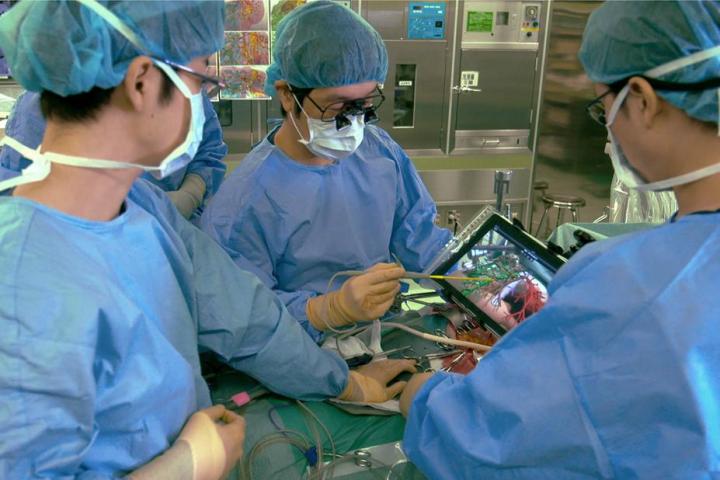
While Verb is staying mum on detailed plans and progress, we do know that the ultimate goal is to put robots in the operating room, where they’ll be able to better assist doctors during various procedures. “Verb Surgical is the first time we’ve launched a new company with a partner,” Verily CEO Andrew Conrad told Wired. “We expect to work closely with pharma, biotech, medical device and diagnostic companies, patient advocacy groups, and academic researchers in different ways for a long time to come.”
Though robots are already utilized in certain operations (with complex names like Robotic-assisted laparoscopic radical prostatectom), they’re certainly not the most common tool at a doctor’s disposal. Today, robots are most often used to hold instruments in place for long periods of time, or to perform very small movements in delicate environments. But Verb hopes to go much further.
“We believe Verb Surgical has the potential to change the future of surgery, not just robotic surgery,” said Gary Pruden, Worldwide Chairman, Johnson & Johnson Medical Devices in a press release. “The team has already made meaningful progress on the robotics platform, which is being developed for application across a host of surgical specialties.”
With tools from Ethicon, the new company hopes to revolutionize the medical field once again, and although we’ll have to wait to see just what it has in store, with players like these in the game, it’s gotta be good.
Editors' Recommendations
- Wildfire smoke prompts Google to issue work-from-home advisory
- Google’s Messages app will soon work better with iMessage
- Google already kicking off work on the Tensor 2 processor for the future Pixel 7
- Google reportedly working on new Gmail logo, suggesting upcoming changes
- Google employees to work from home until July 2021


